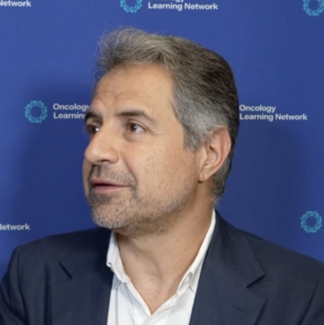Dasatinib Plus CAR T-Cell Therapy Shows Encouraging Efficacy for Patients With Newly Diagnosed Ph-Positive ALL
The combination of dasatinib and sequential CD19-CD22 chimeric antigen receptor (CAR) T-cell therapies demonstrated high rates of complete molecular remission (CMR) and durable survival outcomes among adults with newly diagnosed Philadelphia chromosome–positive (Ph-positive) acute lymphoblastic leukemia (ALL), according to study results published in JAMA Oncology.
Previous research has found CAR T-cell therapy plus immunotherapies efficacious for the treatment of relapsed or refractory disease, however the efficacy and safety of dasatinib combined with CAR T-cell therapy for newly diagnosed disease requires further exploration. Researchers conducted a phase 2, single-arm trial at the First Affiliated Hospital of Zhejiang University School of Medicine for patients with newly diagnosed Ph-positive ALL.
The primary end point was CMR after CD19 CAR T-cell therapy, defined as undetectable BCR/ABL1 transcripts in the bone marrow by highly sensitive reverse transcription polymerase chain reaction (RT-PCR). Secondary end points included CMR after CD22 CAR T-cell therapy, leukemia-free survival (LFS), overall survival (OS), and safety profile.
Overall, 28 patients were treated with an induction regimen of dasatinib, vindesine, and dexamethasone, followed by sequential CD19 and CD22 CAR T-cell therapies and dasatinib maintenance. The median age was 48.5 years (range, 18 to 69) and patients were mostly male (64%). All 28 patients completed induction with a complete hematological remission (CHR) rate of 100% (CHR; 95% confidence interval [CI], 88 to 100) and a CMR rate of 25% (95% CI, 11 to 45). Following CD19 CAR T-cell therapy, the CMR rate was higher (85%; 95% CI, 66 to 96), and 76% (95% CI, 55 to 91) of patients achieved CMR after subsequent CD22 CAR T-cell therapy.
The median follow-up was 23.9 months (range, 7.3 to 47.7) months and 78% (95% CI, 58 to 91) of patients remained in CMR with 4 patients demonstrating durable CHR responses (range, 11.9 to 42.8 months). With a median follow-up of 23.9 months (range, 7.3 to 47.7), Additionally, the 2-year overall survival and leukemia-free survival rates were both 92% (95% CI, 82 to 100).
In terms of safety, treatment was well-tolerated, with only grade 1 cytokine release syndrome (CRS) observed in 21 of 52 CAR T-cell infusions.
"To our knowledge, this was the first trial to evaluate the efficacy and safety of CAR T cells and dasatinib as frontline therapy for newly diagnosed Ph-positive ALL. The results showed this treatment was associated with high CMR and LFS rates with a good safety profile,” the researchers explained.
“The results of this nonrandomized clinical trial suggest that the combination of dasatinib and CAR T-cell therapy showed encouraging efficacy in newly diagnosed Ph-positive ALL with acceptable toxic effects,” they concluded, adding, “Further studies with larger cohorts and longer follow-up durations are needed.”
Source:
Zhang M, Fu S, Feng J, et al. Dasatinib and CAR T-Cell therapy in newly diagnosed Philadelphia chromosome–positive acute lymphoblastic leukemia. JAMA Oncology. Published online April 17, 2025. doi:10.1001/jamaoncol.2025.0674













